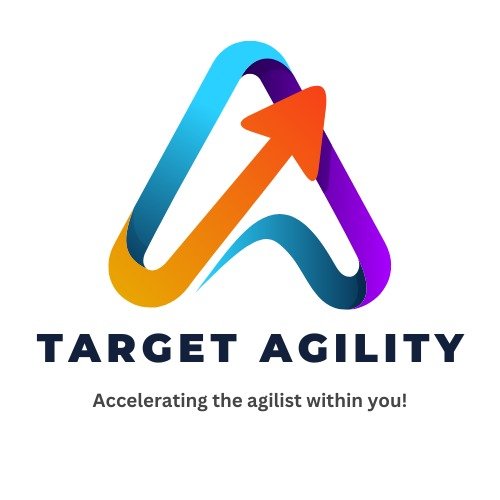The Shift from a Traditional Scrum Master to an Agile Coach
The role of a Scrum Master has undergone a significant transformation over the years. Traditionally, a Scrum Master was primarily responsible for facilitating Scrum ceremonies, removing impediments, and ensuring the team followed Agile principles. However, with the growing complexity of Agile environments and the increasing adoption of Agile beyond IT, the Scrum Master role has evolved into something much more dynamic—an Agile Coach.
From Facilitator to Change Agent
Scrum Masters today are expected to move beyond mere facilitation and act as change agents within organizations. This shift requires them to foster a culture of continuous improvement, drive Agile maturity, and enable organizational transformation at scale. While traditional Scrum Masters focused on guiding teams, Agile Coaches work across teams, leadership, and even entire enterprises to embed an Agile mindset.
The Expanding Responsibilities of a Scrum Master 2.0
- Enterprise Agility Advocate – A modern Scrum Master must champion Agile at an organizational level, helping executives and leadership teams embrace Agile ways of working.
- Data-Driven Decision Maker – They must leverage Agile metrics beyond velocity, such as lead time, cycle time, and team health indicators, to drive continuous improvement.
- Servant Leadership & Coaching – Instead of directing teams, Scrum Masters now focus on coaching individuals, enabling self-organization, and cultivating leadership at all levels.
- Cross-Functional Collaboration – Facilitating collaboration not just within teams but also across departments such as HR, finance, and operations to support enterprise agility.
- Agile Framework Integration – While Scrum remains popular, organizations are also adopting frameworks like SAFe, LeSS, and Kanban. Scrum Masters must understand and integrate multiple Agile methodologies as needed.
Essential Skills for Scrum Masters in 2024
As the role expands, Scrum Masters need to develop new skills that go beyond traditional Scrum facilitation. Here are some of the most crucial skills for Scrum Masters in 2024:
1. Advanced Coaching & Mentoring
The ability to coach individuals and teams is critical. Modern Scrum Masters should be proficient in Professional Coaching techniques (e.g., active listening, powerful questioning, and Socratic methods) to help teams unlock their potential. Certifications such as ICP-ACC (ICAgile Certified Professional in Agile Coaching) can be beneficial.
2. Agile & Lean Portfolio Management
Organizations are increasingly aligning Agile practices with business strategy through Lean Portfolio Management (LPM). A Scrum Master should understand OKRs (Objectives & Key Results), value stream mapping, and funding models to guide Agile transformations at scale.
3. Psychological Safety & Emotional Intelligence (EQ)
High-performing Agile teams thrive in environments of trust and psychological safety. Scrum Masters must cultivate an atmosphere where team members feel safe to experiment, fail, and innovate. Strong emotional intelligence enables them to navigate team conflicts, handle resistance, and foster inclusivity.
4. AI & Agile Automation Knowledge
Read our detailed blog here
With AI-powered Agile tools becoming mainstream, Scrum Masters should stay updated on platforms like JIRA, Azure DevOps, and Rally and understand how AI-driven insights can improve Agile workflows. Additionally, understanding test automation and CI/CD pipelines can help them align Agile practices with DevOps.
5. Systems Thinking & Organizational Change Management
Scrum Masters now need a holistic understanding of how Agile fits into the broader organizational ecosystem. Applying systems thinking helps in identifying bottlenecks beyond just the Scrum team. Change management frameworks like ADKAR (Awareness, Desire, Knowledge, Ability, Reinforcement) can assist in driving Agile adoption across the enterprise.
6. Conflict Resolution & Negotiation Skills
Agile transformations often face resistance, whether from leadership, middle management, or teams accustomed to traditional project management. Scrum Masters must develop strong negotiation and conflict resolution skills to align stakeholders and drive change effectively.
7. Value-Driven Mindset & Business Agility
A Scrum Master 2.0 must focus on delivering customer value rather than just executing Agile rituals. Understanding Lean Startup principles, Design Thinking, and Agile product ownership can help Scrum Masters contribute to business agility.
Conclusion: The Future of Scrum Masters
The evolution from a traditional Scrum Master to an Agile Coach marks a significant shift in the Agile landscape. Today’s Scrum Masters are no longer just facilitators; they are organizational catalysts, cultural influencers, and strategic enablers. To stay relevant in 2024 and beyond, Scrum Masters must embrace continuous learning, acquire new skills, and adapt to the ever-changing Agile ecosystem.
Whether you’re an aspiring Scrum Master or a seasoned professional, the key to success lies in expanding your skill set, developing a coaching mindset, and driving Agile transformation beyond just the team level. The future of Agile is dynamic, and Scrum Masters 2.0 are at the forefront of shaping it!
📌 Are you ready to upgrade your Scrum Master skills? Let us know in the comments what challenges you face in your Agile journey or the skills you’re focusing on in 2024!











